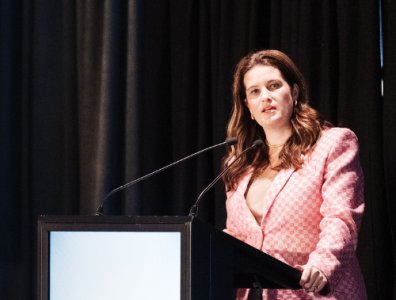Climate action is a shared responsibility
Boards are not acting alone and need to share knowledge and approaches with other boards when it comes to the climate challenge, according to a panel of senior directors convened by the Institute of Director’s Chapter Zero New Zealand.
Cathy Quinn ONZM, CMInstD, Mark Verbiest CFInstD and Joan Withers CFInstD were speaking on a panel hosted by Scott St John CFInstD at a breakfast event on 31 March.
The four represent a significant cross-section of New Zealand’s business community sitting on boards including Fletcher Building, Fonterra, Fisher and Paykel Healthcare, ANZ, Mercury Energy, Meridian Energy, Summerset Group, the Warehouse and Sky Television.
Their message to New Zealand boards was that “you are not alone” when it comes to climate action, and that nobody has all the answers as to how to manage an organisation through changing regulatory and social expectations.
“The absolute first thing you have to do as a board is develop a deep understanding of what your risks and opportunities might be,” advises Verbiest.
It is a physical, regulatory and reputational issue that must be addressed at board level – and targets should only be set once the board is confident it understands the issues, he says.
“Don’t ignore it. The only other thing I would add is that I genuinely don’t think any of us can do this as an individual board, by ourselves.”
That idea of sharing knowledge and ideas includes expecting clarity from government, he notes.
Withers says the best way to develop your understanding of climate issues – as a board – is to put someone on the case.
“If you want to get some momentum, set up a dedicated board committee. You also need to have people in the organisation who are at the coalface, who are able to assist you on the journey.”
This is an important step for understanding the science behind both climate change and your organisation’s risks and opportunities, Withers says. Otherwise, you may create your own risks by biting off more than you can chew.
Withers notes that the Australian Securities and Investments Commission has indicated boards that set unrealistic climate targets could be at risk of action for “greenwashing”.
“You need to have realistic objectives. If there is greenwashing then they will be coming after you.”
Quinn added that climate competency is increasingly important if boards are to react to changing circumstances effectively.
“Be adaptable, because expectations around climate are changing rapidly. Be realistic, because often the solutions are not there. Understand your carbon footprint, including the breakdown of scopes 1, 2 and 3 emissions” Quinn says.
And alongside embracing climate knowledge and action, keep sight of the underlying sustainability of your business model, she says.
“Include on your climate committee a less-passionate climate person because they can test the rest of us as to whether or not things make sense from a business perspective.”
Across the panel, there was a view that boards need to get moving now on climate issues and those who delay will be creating risks for their organisations.
“Don’t spend too much time discussing why you don’t need to change, rather than just getting on with changing,” Quinn says, warning that climate reporting should not be left to the marketing or communications teams.
“You need to apply the same degree of rigour that you do to financial reporting and forecasting.”
For information, tools and resources to help your board with climate governance sign up to Chapter Zero New Zealand at chapterzero.nz



